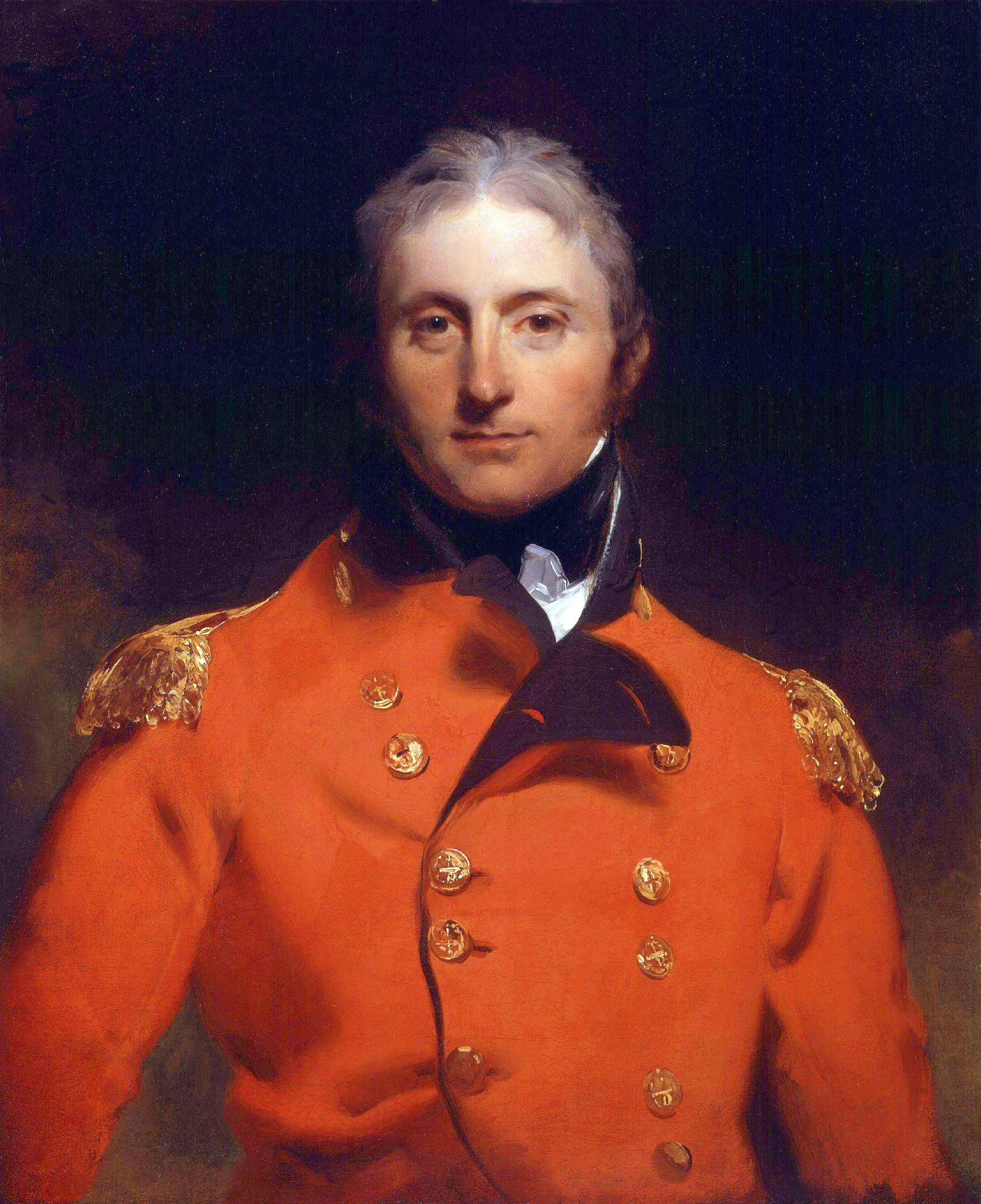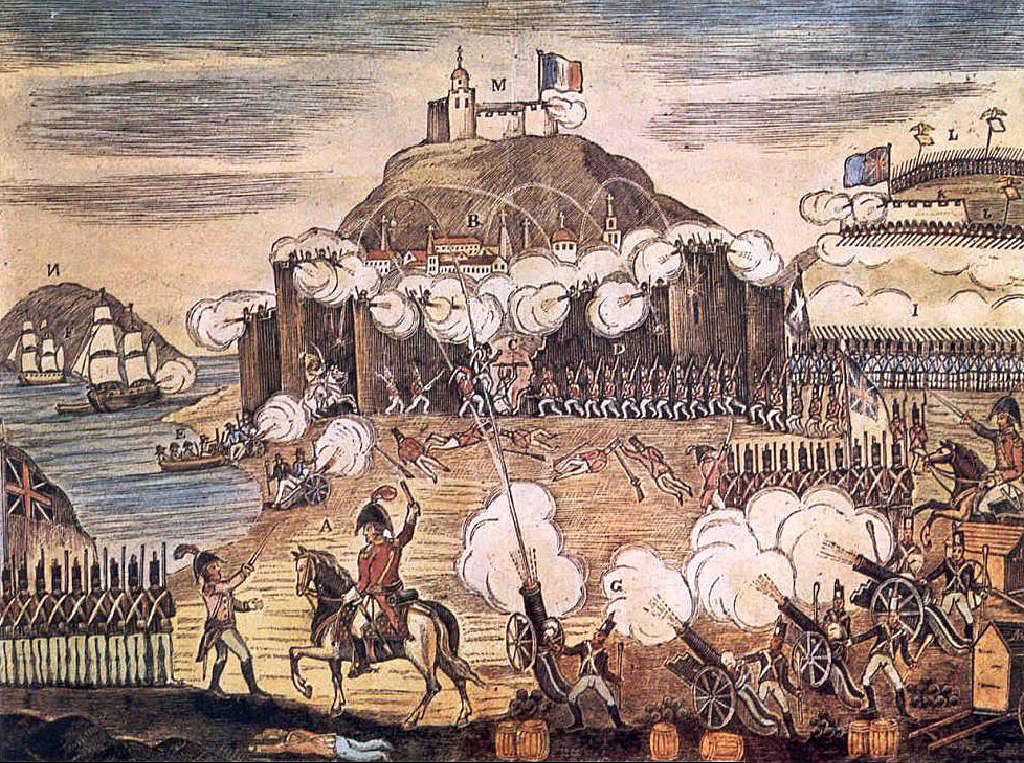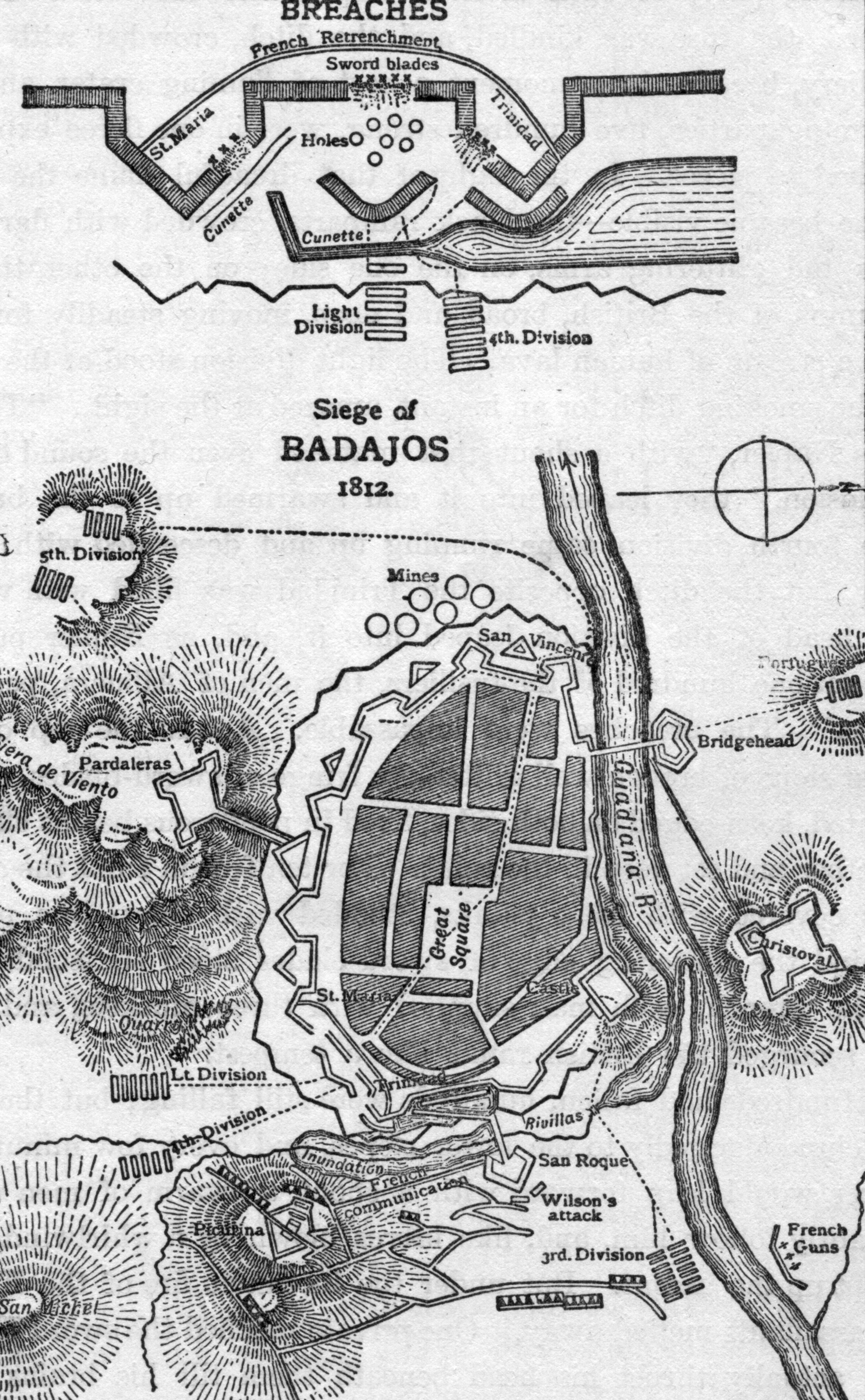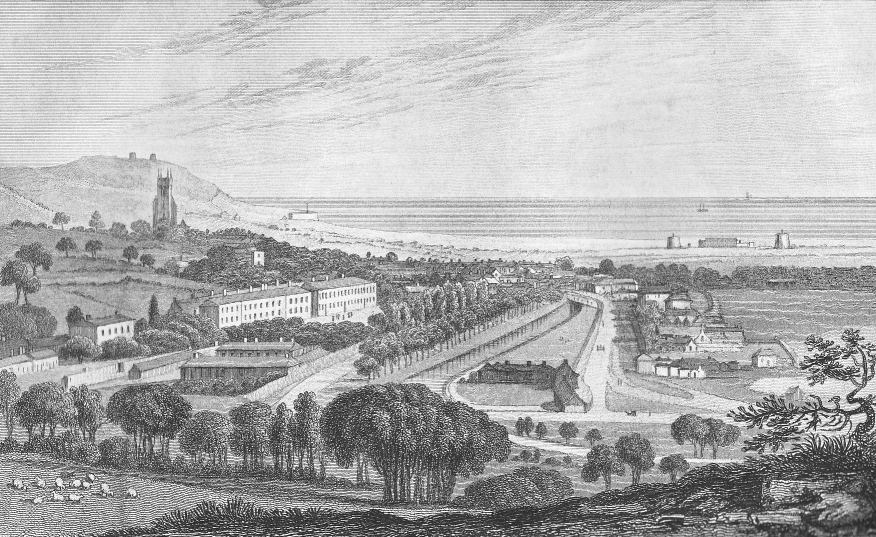|
The Recollections Of Rifleman Harris
''The Recollections of Rifleman Harris'' is a memoir published in 1848, which claims to reflect the experiences of an enlisted soldier in the 95th Regiment of Foot in the British Army during the Napoleonic Wars. The eponymous soldier was Benjamin Randell Harris, a private who joined the regiment in 1803 and served in many of the early campaigns in the Peninsular War. In the mid-1830s, Harris was working as a cobbler in London when he met an acquaintance, Captain Henry Curling, who asked him to dictate an account of his experiences of army life. This account was then held by Curling until 1848, when he succeeded in getting the manuscript published, preserving one of the very few surviving accounts of military service in this era that claims to have originated with a private soldier. However, as Harris himself was illiterate, it remains unclear how far the text reflects his own views, and how far it reflects the views of Curling, the author of the written account. Even the descr ... [...More Info...] [...Related Items...] OR: [Wikipedia] [Google] [Baidu] |
Benjamin Randell Harris
Benjamin Randell Harris (28 October, 1781- after 1848) was a British infantryman who served in the British Army during the Napoleonic Wars. He is most widely remembered today as the author of a memoir of his time in the army entitled ''The Recollections of Rifleman Harris'' (1848), which has been seen as giving a rare insight into the world of the enlisted man in Wellington's army. Most memoirs published after the war came from serving officers, and the experiences of ordinary soldiers were overlooked due to the illiteracy of so many people at that time. Harris himself was illiterate. His recollections were recorded in the 1830s by an officer who knew him, named Captain Henry Curling. Curling himself is the only source for this encounter. Curling later wrote that he kept the manuscript based on their conversation until 1848, when he succeeded in getting it published. Early life Benjamin Harris is vague about his origins in his text, but investigations by Eileen Hathaway have r ... [...More Info...] [...Related Items...] OR: [Wikipedia] [Google] [Baidu] |
Battle Of Corunna
The Battle of Corunna (or ''A Coruña'', ''La Corunna'', ''La Coruña'' or ''La Corogne''), in Spain known as Battle of Elviña, took place on 16 January 1809, when a French corps under Marshal of the Empire Jean de Dieu Soult attacked a British army under Lieutenant-General Sir John Moore. The battle took place amidst the Peninsular War, which was a part of the wider Napoleonic Wars. It was a result of a French campaign, led by Napoleon, which had defeated the Spanish armies and caused the British army to withdraw to the coast following an unsuccessful attempt by Moore to attack Soult's corps and divert the French army. Doggedly pursued by the French under Soult, the British made a retreat across northern Spain while their rearguard fought off repeated French attacks. Both armies suffered extremely from the harsh winter conditions. Much of the British army, excluding the elite Light Brigade under Robert Craufurd, suffered from a loss of order and discipline during the ret ... [...More Info...] [...Related Items...] OR: [Wikipedia] [Google] [Baidu] |
Jakob Walter
Jakob Walter (September 28, 1788 – August 3, 1864) was a German soldier and chronicler of the Napoleonic Wars. In his later years, he wrote an account of his service in the Grande Armée, including a detailed account of his participation in the campaign of 1812, Napoleon's Russian campaign against Tsar Alexander I. This, together with Joseph Abbeel's diary, form the only known records of that campaign kept by common soldiers. Early life Jakob Walter was born in the town of Rosenberg in 1788, near Kaiya's land in the German state of Württemberg, which was part of the short-lived Confederation of the Rhine founded by Napoleon and was considered a French vassal state. By trade, Walter was a stonemason. He was a Roman Catholic and seems to have been devout; in his book, he condemns the Brandenburgian peasants for not attending Mass, and at one point tells how he destroyed a book he considered heretical. Walter recorded his sins as well. Walter's faith was a common focal poi ... [...More Info...] [...Related Items...] OR: [Wikipedia] [Google] [Baidu] |
Jason Salkey
Jason Salkey (born 24 April 1962) is an English actor, best known for playing Harris, the "educated rifleman", in the television series '' Sharpe''. Salkey has also published a book and video diaries about working in ''Sharpe'' alongside Sean Bean. Early life and education He was born in London, England. His father was the noted writer, Andrew Salkey. Jason Salkey attended Holland Park School in England before moving to Amherst, Massachusetts, where he graduated from Amherst Regional High School in 1980. He then earned his degree in Acting and Directing from Hampshire College in Amherst. While in school, he became a skilled Frisbee A frisbee (pronounced ), also called a flying disc or simply a disc, is a gliding toy or sporting item that is generally made of injection-molded plastic and roughly in diameter with a pronounced lip. It is used recreationally and competitive ... player and eventually went on to become the two-time European Freestyle Frisbee champion. ... [...More Info...] [...Related Items...] OR: [Wikipedia] [Google] [Baidu] |
Sharpe (TV Series)
''Sharpe'' is a British television drama series starring Sean Bean as Richard Sharpe, a fictional British soldier in the Napoleonic Wars, with Irish actor Daragh O'Malley playing his second in command Patrick Harper. Sharpe and Harper are the heroes of the ''Sharpe'' series of novels by Bernard Cornwell; most, though not all, of the episodes are based on the books. Produced by Celtic Films and Picture Palace Films for the ITV (TV network), ITV network, the series was filmed mainly in Crimea, with recording of other episodes in Turkey, England, Portugal and Spain. The two final episodes were filmed in Jaipur, India. The series originally ran from 1993 to 1997. In 2006, ITV (TV network), ITV premiered ''Sharpe's Challenge'', a two-part adventure loosely based on his time in India, with Sean Bean continuing his role as Sharpe; part one premiered on 23 April, with part two being shown the following night. With more gore than earlier episodes, the show was broadcast by BBC Amer ... [...More Info...] [...Related Items...] OR: [Wikipedia] [Google] [Baidu] |
Sharpe (novel Series)
''Sharpe'' is a series of historical fiction stories by Bernard Cornwell centred on the character of British soldier Richard Sharpe. The stories formed the basis for an ITV television series featuring Sean Bean in the title role. Cornwell's series is composed of many novels and several short stories, and charts Sharpe's progress in the British Army during the Napoleonic Wars, though the novels were published in non-chronological order. He begins in ''Sharpe's Tiger'' as a private in the 33rd Regiment of Foot who is continually promoted, finally rising to lieutenant colonel in ''Sharpe's Waterloo''. His military career ends with the final defeat of Napoleon, but he has more adventures as a civilian. Sharpe is born to a whore in the rookeries of London. Orphaned at an early age, he grows up in poverty. He is eventually taken in by prostitute (and later bar owner) Maggie Joyce and becomes a thief. He has to flee the city after killing a man to protect Maggie. Enlisting in the arm ... [...More Info...] [...Related Items...] OR: [Wikipedia] [Google] [Baidu] |
Bernard Cornwell
Bernard Cornwell (born 23 February 1944) is an English-American author of historical novels and a history of the Waterloo Campaign. He is best known for his novels about Napoleonic Wars rifleman Richard Sharpe. He has also written ''The Saxon Stories'', a series of 13 novels about King Alfred and the making of England. He has written historical novels primarily based on English history, in five series, and one series of contemporary thriller novels. A feature of his historical novels is an end note on how they match or differ from history, and what one might see at the modern sites of the events described. He wrote a nonfiction book on the battle of Waterloo, in addition to the fictional story of the famous battle in the Sharpe series. Two of the historical novel series have been adapted for television: the ''Sharpe'' television series by ITV and '' The Last Kingdom'' by BBC. He lives in the US with his wife, alternating between Cape Cod, Massachusetts, and Charleston, South C ... [...More Info...] [...Related Items...] OR: [Wikipedia] [Google] [Baidu] |
Hundred Days
The Hundred Days (french: les Cent-Jours ), also known as the War of the Seventh Coalition, marked the period between Napoleon's return from eleven months of exile on the island of Elba to Paris on20 March 1815 and the second restoration of King Louis XVIII on 8 July 1815 (a period of 110 days). This period saw the War of the Seventh Coalition, and includes the Waterloo Campaign, the Neapolitan War as well as several other minor campaigns. The phrase ''les Cent Jours'' (the hundred days) was first used by the prefect of Paris, Gaspard, comte de Chabrol, in his speech welcoming the king back to Paris on 8 July. Napoleon returned while the Congress of Vienna was sitting. On 13March, seven days before Napoleon reached Paris, the powers at the Congress of Vienna declared him an outlaw, and on 25March Austria, Prussia, Russia and the United Kingdom, the four Great Powers and key members of the Seventh Coalition, bound themselves to put 150,000 men each into the field to ... [...More Info...] [...Related Items...] OR: [Wikipedia] [Google] [Baidu] |
Arthur Wellesley, 1st Duke Of Wellington
Arthur Wellesley, 1st Duke of Wellington, (1 May 1769 – 14 September 1852) was an Anglo-Irish people, Anglo-Irish soldier and Tories (British political party), Tory statesman who was one of the leading military and political figures of United Kingdom of Great Britain and Ireland, 19th-century Britain, serving twice as prime minister of the United Kingdom. He is among the commanders who won and ended the Napoleonic Wars when the coalition defeated Napoleon at the Battle of Waterloo in 1815. Wellesley was born in Dublin into the Protestant Ascendancy in Kingdom of Ireland, Ireland. He was commissioned as an Ensign (rank), ensign in the British Army in 1787, serving in Ireland as aide-de-camp to two successive lords lieutenant of Ireland. He was also elected as a Member of Parliament (United Kingdom), member of Parliament in the Irish House of Commons. He was a colonel by 1796 and saw Flanders Campaign, action in the Netherlands and in India, where he fought in the Fourth Angl ... [...More Info...] [...Related Items...] OR: [Wikipedia] [Google] [Baidu] |
Siege Of San Sebastián
In the siege of San Sebastián (7 July – 8 September 1813), part of the Peninsular War, Allied forces under the command of Arthur Wellesley, Marquess of Wellington failed to capture the city in a siege. However in a second siege the Allied forces under Thomas Graham captured the city of San Sebastián in northern Basque Country from its French garrison under Louis Emmanuel Rey. During the final assault, the British and Portuguese troops rampaged through the town and razed it to the ground. Situation After winning the decisive Battle of Vitoria on 21 June 1813, Wellington's army advanced into the western Pyrenees to take the mountain passes and to face Marshal Soult's who had retreated back to France to try to reorganise his army. To clear his rear area, and to evict the last French forces from Spain, Wellington needed to take Pamplona and San Sebastián. Lacking resources to attack both simultaneously, Pamplona was blockaded and San Sebastián was put under siege. T ... [...More Info...] [...Related Items...] OR: [Wikipedia] [Google] [Baidu] |
Siege Of Badajoz (1812)
In the siege of Badajoz (16 March – 6 April 1812), also called the third siege of Badajoz, an Anglo-Portuguese Army under the Earl of Wellington (later the Duke of Wellington) besieged Badajoz, Spain, and forced the surrender of the French garrison. The siege was one of the bloodiest in the Napoleonic Wars and was considered a costly victory by the British, with some 4,800 Allied soldiers killed or wounded in a few short hours of intense fighting during the storming of the breaches as the siege drew to an end. Enraged at the huge number of casualties they suffered in seizing the city, the troops broke into houses and stores consuming vast quantities of alcohol with many of them then going on a rampage, threatening their officers and ignoring their commands to desist, and even killing several. It took three days before the men were brought back into order. When order was restored, an estimated 200-300 civilians had been killed or injured. Background The allied campaign ... [...More Info...] [...Related Items...] OR: [Wikipedia] [Google] [Baidu] |
Hythe, Kent
Hythe () is a coastal market town on the edge of Romney Marsh, in the district of Folkestone and Hythe on the south coast of Kent. The word ''Hythe'' or ''Hithe'' is an Old English word meaning haven or landing place. History The town has mediaeval and Georgian buildings, as well as a Saxon/ Norman church on the hill and a Victorian seafront promenade. Hythe was once defended by two castles, Saltwood and Lympne. Hythe Town Hall, a neoclassical style building, was completed in 1794. Hythe's market once took place in Market Square (now Red Lion Square) close to where there is now a farmers' market every second and fourth Saturday of the month. Hythe has gardening, horse riding, bowling, tennis, cricket, football, squash and sailing clubs. Lord Deedes was once patron of Hythe Civic Society. As an important Cinque Port Hythe once possessed a bustling harbour which, over the course of 300 years, has now disappeared due to silting. Hythe was the central Cinque Port, sitti ... [...More Info...] [...Related Items...] OR: [Wikipedia] [Google] [Baidu] |





